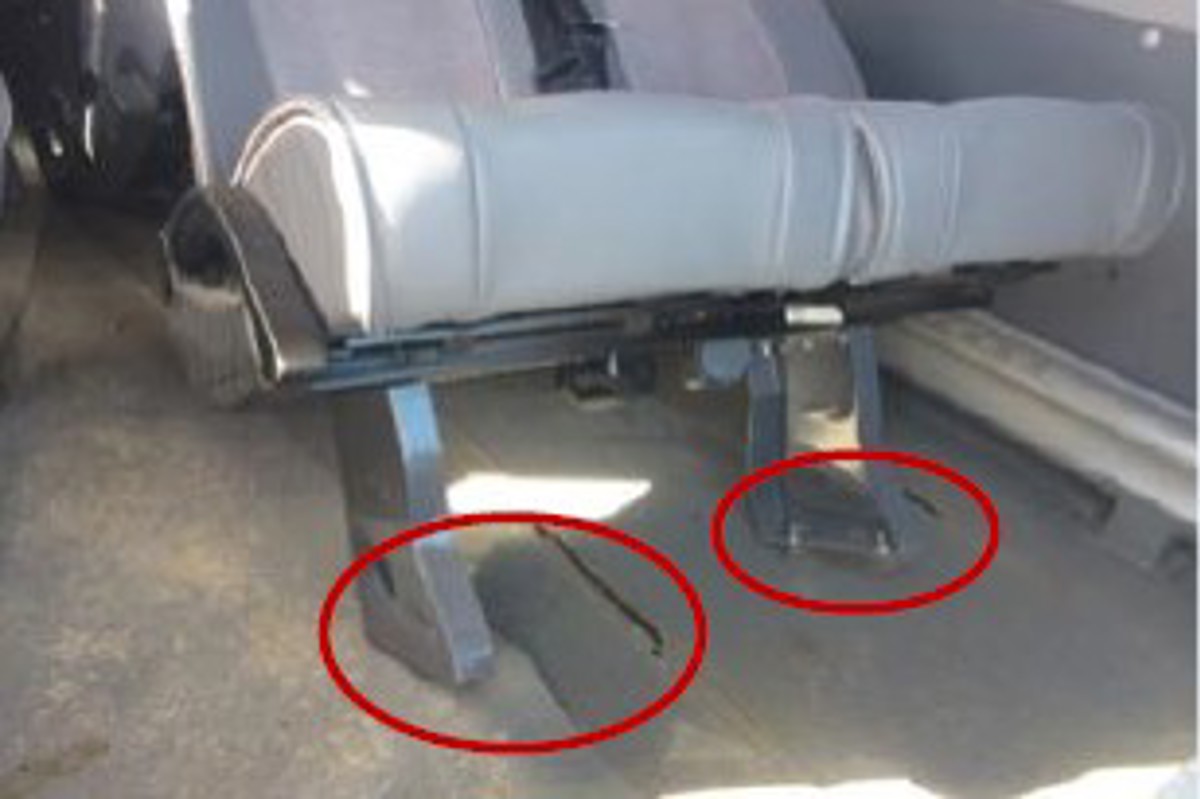Passenger safety in retrofitted mini-vans/buses
- Safety Flash
- Published on 1 September 2017
- Generated on 14 July 2025
- IMCA SF 22/17
- 2 minute read
Jump to:
An International Association of Oil & Gas Producers (IOGP) member reports on an audit into the use of retrofitted vehicles, e.g. converted cargo-duty mini-vans/buses for passenger transportation.
What happened?
Inspections undertaken in Azerbaijan demonstrated that retrofitted vehicles with supplier certification (e.g. “letter of conformance”) for the retrofit installation and anchoring of seats can potentially be unsafe.
Inspected vehicles were found to be out of conformance with the standards set out by United Nations Vehicle Regulations 17 for seat anchoring – see the UNECE website for details.
Where the seat anchoring is inadequate, there is a potential risk that in the event of a collision, the seats could pull from the floor.

What lessons were learnt? What actions were taken?
Members may wish to thoroughly inspect the seat anchorages on any retrofitted vehicles in use, and where issues with inadequate seat anchorage bolts are identified, take appropriate action. The IOGP Safety Alert (#287) notes:
- Verify through inspection the type of seat anchorage bolts used. Seat anchorage bolts where “square plates” (Figure 1) are welded to the bolts might be inadequate in holding the seat in its position in the event of lateral force being applied (e.g. during collision). Only use appropriate, fit for purpose, bolts (e.g. made out of one piece) to robustly secure the seat.
- Verify through inspection the anchoring of the supporting rails and rail supporting beams. These might be inadequately anchored to the vehicle when retrofitted (Figure 2). These rails and beams must be adequately anchored to the chassis (e.g. bolted).

IMCA Safety Flashes summarise key safety matters and incidents, allowing lessons to be more easily learnt for the benefit of the entire offshore industry.
The effectiveness of the IMCA Safety Flash system depends on the industry sharing information and so avoiding repeat incidents. Incidents are classified according to IOGP's Life Saving Rules.
All information is anonymised or sanitised, as appropriate, and warnings for graphic content included where possible.
IMCA makes every effort to ensure both the accuracy and reliability of the information shared, but is not be liable for any guidance and/or recommendation and/or statement herein contained.
The information contained in this document does not fulfil or replace any individual's or Member's legal, regulatory or other duties or obligations in respect of their operations. Individuals and Members remain solely responsible for the safe, lawful and proper conduct of their operations.
Share your safety incidents with IMCA online. Sign-up to receive Safety Flashes straight to your email.